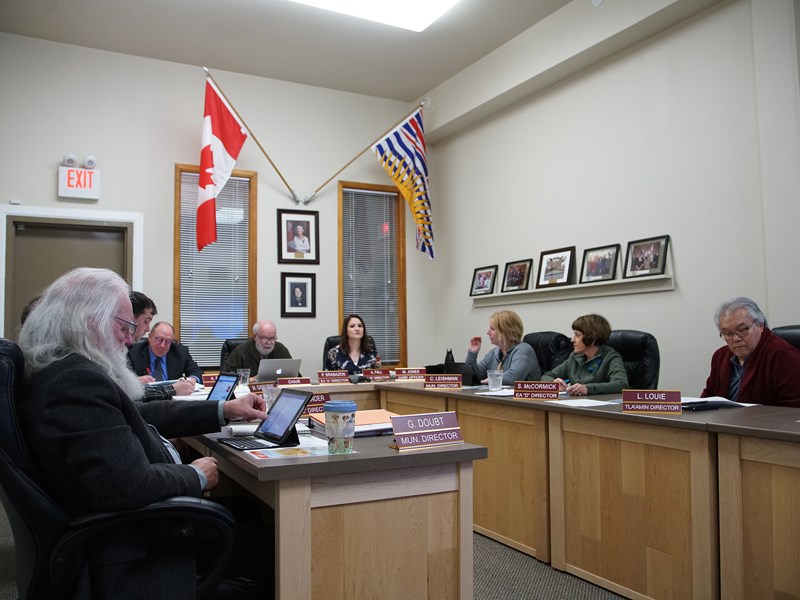qathet Regional District has named a committee of three as a working group to develop a code of conduct.
At the regional board meeting on Thursday, January 31, directors voted that board chair Patrick Brabazon, city director George Doubt and Electoral Area E director Andrew Fall be appointed to the working group.
During discussion, Doubt said he had been doing research on code of conduct in local governments. He said the codes he had seen ranged from one paragraph to 53 pages.
“I’m not sure the 53 pages are any more effective; as a matter of fact I think they’d be less effective than the one paragraph,” said Doubt. “There’s a lot of discussion to be had about that and I notice in our procedure bylaw, it takes notice that directors have to abide by applicable codes of conduct, but I don’t find one in our policy. It makes sense to establish something. I would be in favour of the shorter one as opposed to the longer one, but I guess that’s for the three people on the committee to work through and bring back to the board.”
Electoral Area B director Mark Gisborne said he went to the Union of British Columbia Municipalities website, and one of the things it talked about is the importance of ensuring all board members understand the purpose of embarking on development of a code of conduct and have clear expectations about what it will and will not do. Gisborne said there needs to be consensus on the process for developing it.
Other important things to keep in mind, said Gisborne, is that consensus may be challenging, but having these difficult conversations are an important part of developing a meaningful code of conduct.
“It is my opinion that the code of conduct should be developed among all members of the board, not just three,” said Gisborne.
One of the other issues that was being proposed here, is there is an impression from the public that government is run by old, white men, he added.
“No offence to the directors whose names have been put forward but it appears we are putting forward the three oldest, whitest men,” said Gisborne. “The code of conduct should be developed by all members of the board so we can have the difficult conversations which are happening here, and that we can make it meaningful. If all members of the board don’t agree to it, when the code of conduct comes out, then it doesn’t work.”
Gisborne said the way the motion was worded, he was going to vote against it. He said he would prefer a code of conduct be developed by all members of the board.
Chief administrative officer Al Radke said the new, updated board procedures bylaw has not been developed yet, but it will be going through the same process as what the proposed code of conduct will be going through. He said the individuals given that task are just the heavy lifters, because if everyone is on the working group, then there is a quorum and a meeting has to be held.
“They will be making the recommendations back to the board as a whole,” said Radke, adding that the board will have a fulsome discussion to agree, disagree or to come to a new path on certain passages.
“Hopefully, it will take some of your fear away,” said Radke. “You will have the opportunity to discuss this in greater detail once the working group has finished its heavy lifting and makes its recommendations to the committee.
City director CaroleAnn Leishman said any of the other directors, if they wish to make recommendations, suggestions or comments to that working group, could do so.
Gisborne said his concern is not fear, and that leaving this up to the heavy lifters and not having it happen at the board table in front of the public eye, results in conversations happening outside of the public eye.
“I do not feel comfortable with what is being proposed,” said Gisborne. “Everyone should be on the same page.”
Electoral Area D director Sandy McCormick said the regional district has several committees and working groups. She said if everybody did everything, that would get unwieldy.
“It’s far better to have a recommendation from people who have dedicated the time to research that issue and bring it to us,” said McCormick. “The board still makes the decisions. The committee will have lots of debate and we can add, or subtract, or delete any of the recommendations the group puts forward to us. I have no problem with appointing three people to sit on this. It’s very typical of what we do.”
The regional board voted in favour of the establishment of the working group with the three proposed directors, with Gisborne opposed.



